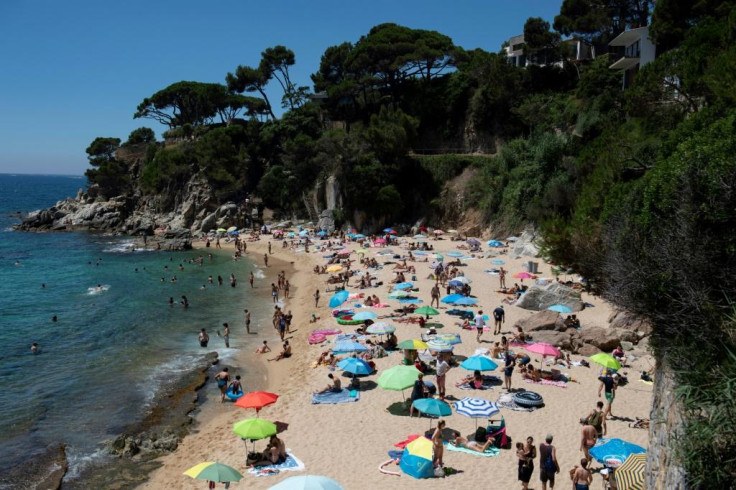Spanish island suffers worst wildfire in 40 years; is it safe to travel to Tenerife?
Wildfires in Tenerife are rapidly spreading, moving closer to tourist spots

As the sweltering heatwave continues to wreak havoc across Europe, wildfires have broken out in several parts of Italy, Greece, Portugal and Spain. The latest forest fire has occurred in Tenerife, one of Spain's most popular holiday hotspots.
The wildfire in Tenerife is rapidly spreading through a forested area with steep ravines in the northeastern part of the Spanish island. Around 150 firefighters, 50 military personnel and 10 helicopters are battling the forest fire, which first broke out on Tuesday near Mount Teide volcano.
Spain has been experiencing hot and dry weather over the last couple of months and that has worsened the blazes, which forced nearly 4,500 people from five villages to flee to safer locations. The five affected villages include Arrate, Chivisaya, Media Montaña, Ajafoña and Las Lagunetas.
Wildfires in Tenerife, Spain are out of control. Stay safe people 🙏🏻🫶🏻 pic.twitter.com/lGILetrY9N
— Tobi Mülhauser 🍕 (@TobiMuelhauser) August 18, 2023
Is it safe to travel to Tenerife?
Since the flames are raging across the mountainous national park, the authorities have suggested that highly flammable pine trees in the area could cause the fires to escalate towards tourist hotspots on the Canary Islands. These include Santa Cruz de Tenerife and Puerto de la Cruz.
Despite the out-of-control flames in several parts of Tenerife, the Spanish island's South and North airports are operating normally. There have been no reports of delayed or cancelled flights so far, according to BBC.
With the airports still functional, tourists may still fly down to Tenerife, but the officials of the popular vacation spot are advising against it, according to Time Out.
Canary Islands regional head Fernando Clavijo said on Wednesday that "The fire is out of control, the outlook is not positive." Meanwhile, president of Tenerife Council Rosa Davila has said that "the blaze has huge potential" considering strong winds are predicted for the coming days.
With Spain experiencing its third heatwave, temperatures have been consistently soaring above 40°C. Some parts of the country have seen the mercury go as high as 44°C in recent days. Over the last week, the Canary Islands have been affected a lot, with temperatures rising past 35°C. It has left many areas dry, increasing the risk of wildfires, the authorities have warned.
UK Foreign Office's advisory
The Foreign, Commonwealth and Development Office (FCDO) is currently not advising against trips to Tenerife, so flights and holidays planned by various operators are being continued as planned.
However, the intensity of the latest wildfires is unpredictable and a change can take place at any time. Therefore, it is crucial for all travellers to monitor the FCDO's advisories on their official website. If a person has booked to travel to the region affected by the wildfires, they must check with their hotel/accommodation or tour operator.
The UK Foreign Office has general advice on dealing with extreme temperatures in Spain as well as advice on staying safe if they encounter a forest fire.
"Forest fires occur frequently in Spain (including in the Spanish islands) during the summer months when temperatures regularly reach over 40ºC. Be aware of your environment when visiting or driving through woodland areas," FCDO wrote on their website.
"Causing a forest fire is a criminal offence in Spain, even if unintentional. Make sure cigarette ends are properly extinguished, do not light barbecues and do not leave empty bottles behind. You can be heavily fined for not following the rules against lighting outdoor barbecues in forest areas," added FCDO.
Unfazed beachgoers in Tenerife
Despite mass evacuations across Tenerife, several travellers have been captured back at the beach, with scenes of the wildfire burning in the background. A video posted by X user @neftis26 has shown people on a northern Tenerife beach observing the large plumes of smoke coming from the fire. People have come out even after being advised to stay indoors due to poor air quality.
Clavijo has admitted that the latest forest fire is "probably the most complex fire we've ever had in the Canary Islands in at least the past 40 years."
"The extreme heat and weather conditions is making the work harder," he added.
© Copyright IBTimes 2025. All rights reserved.






















